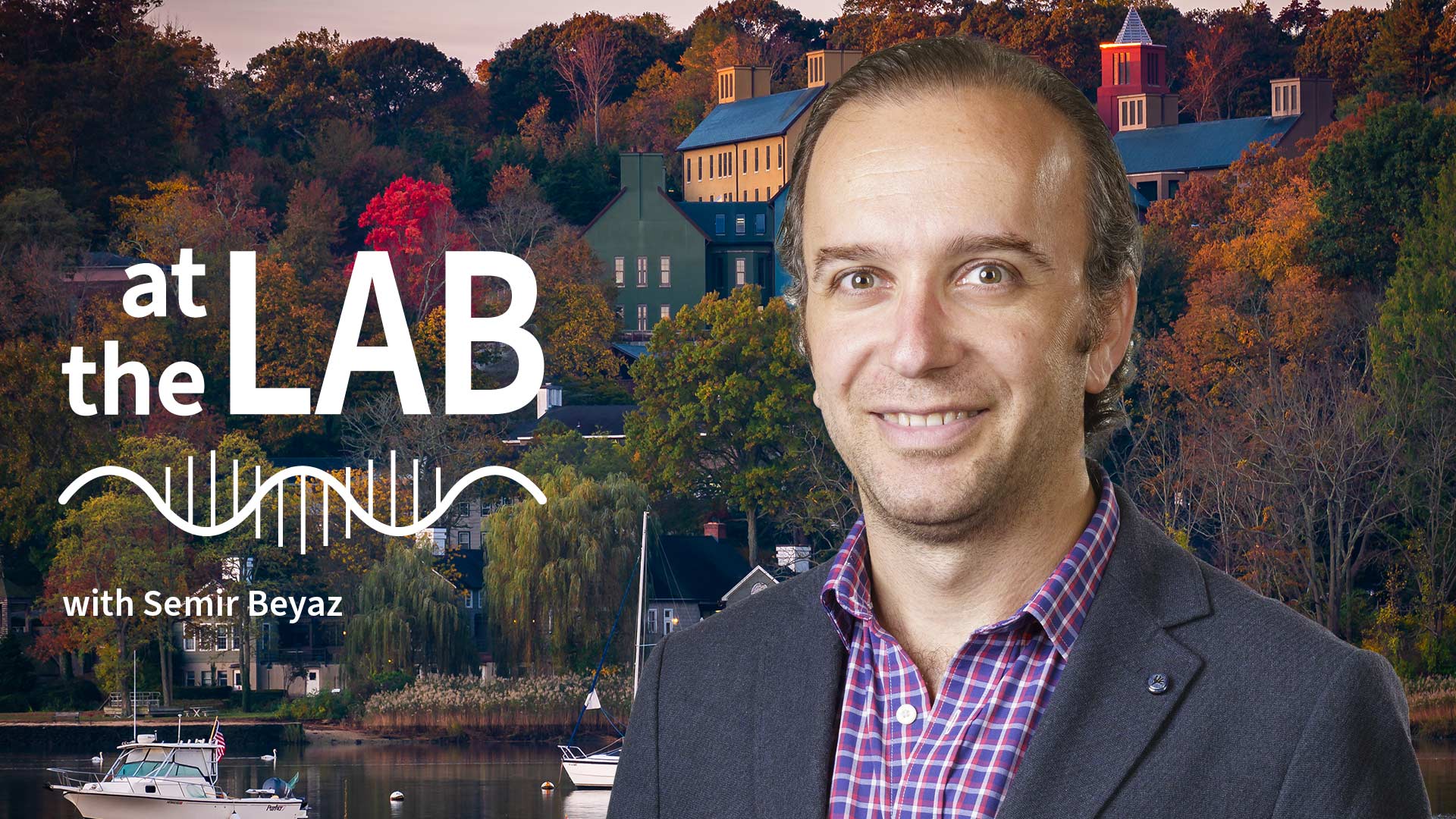Call it a Trojan horse or a double agent. Metastatic breast cancer has some very clever ways of sneaking past the body’s immune system. In this week’s podcast, we play a kind of “good cop, bad cop” with CSHL Assistant Professor Semir Beyaz to get to the bottom of the case. Tune in to hear what his investigation turned up.
Read the related story: Metastatic breast cancer’s Trojan horse
Transcript
Nick Wurm: You’re now At the Lab with Cold Spring Harbor Laboratory. My name is Nick Wurm, and this week At the Lab, “Cancer cops.”
{Film noir music plays as a police siren rings.}
NW: In a lot of ways, your immune system is like your body’s personal police force. At the first warning sign of cancer, it’s supposed to dispatch T cells to protect you. You can think of these immune cells as your body’s cancer cops.
NW: CSHL Assistant Professor Semir Beyaz takes this analogy a step further.
Semir Beyaz: You can consider [the] lymph node as your local police station. It collects all the information from the neighboring organs and then teaches the immune system that there is something wrong.
NW: With so many cops around, you’d think the lymph node would be the last place cancer would want to go. So then why is it metastatic breast cancer’s first stop?
NW: To crack the case, Beyaz did what any good detective does. He put himself in the mind of a criminal.
SB: Imagine you are like a mob in a neighborhood, and then you go to invade another neighborhood. You are first going to go to the local police station, probably corrupting the officers there, and then going to the next neighborhood. And then you are taking over the whole city.
NW: How does metastatic breast cancer ‘corrupt’ the body’s police force? Beyaz discovered that in mice, this kind of cancer dons the uniform of an immune system molecule called MHC-II.
NW: The disguise is so convincing that when other officers try to report cancer’s inside man, the immune system treats it like a false alarm.
SB: In the breast, we found that when you have MHC-II, it’s actually suppressing the immune response, protecting cancer cells.
NW: In other words, cancer rises through the immune system’s ranks and starts calling the shots.
{Film noir music}
Old-Timey Gangster: Now listen here, copper.
NW: How do you clean up such systemic corruption? According to Beyaz, you have to nip it in the bud. His team found that if they turned off MHC-II production in the breast, the unmasked cancer cells couldn’t set up shop in the lymph node. That allowed the immune system to arrest cancer’s growth.
{A jail cell door closes.}
NW: You can’t end organized crime overnight. Likewise, there’s a long road ahead before this research can lead to new breast cancer treatments. But Beyaz and his team have found important clues. And the investigation continues At the Lab.
NW: Thanks again for tuning in. Please subscribe wherever you get your podcasts. And visit us at CSHL.edu to find more fascinating stories like this one. For Cold Spring Harbor Laboratory, I’m Nick Wurm. And I’ll see you next time At the Lab.
